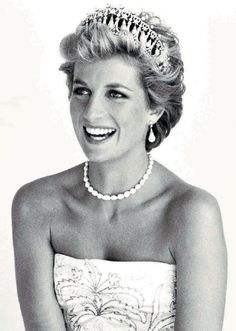If you have spent any time at all in the checkout line at the grocery store, then most likely you’ve noticed the many magazines that draw us into the stories of our world’s royalty. If you are old enough to remember Princess Diana, you’ll remember the minute-by-minute coverage of her life from the moment she came on the scene until her tragic death. Even now her story makes headlines with conspiracy theories and memories. And just a few years ago we became enamored with Catherine (Kate) Middleton, who became Princess Kate when she married Diana’s son Prince William. (I happen to think she pales in comparison to our own little Princess Kate!) For some reason, the concept of royalty captures our attention and keeps us coming back for more. The idea that a human being was at some point in his or her lineage set apart and called “royal” is fairytale-like and stirs our imagination.
Early in the Scriptures we read that God would rather not introduce the pattern of kings. Instead, God would lead His people and speak through judges and prophets. But the people wanted a king. Even God’s people were consumed with the idea of royalty—so much so that they begged God to give them a king. They wanted something more: more ornate, more official, more royal. They wanted a king.
In contrast to an attempt by his older brother to usurp the throne, Solomon received the throne because he was chosen by his father. Leadership is a gift. The roles we have that allow us to influence others are always a gift—both from the leaders who have influenced us and for the people over whom we have charge.
Solomon’s life changed immensely in that moment when his father named him king. Consider the immediate transformation that Solomon went through in that moment. While he was already royalty by virtue of being born the son of a king, he went from being just one of many royal sons (1 Chronicles 3:9 lists nineteen sons and one daughter born to David) to ruler of the nation. When David gives instructions for Solomon to be named king over Israel, there is no name attached to give Solomon status. He now carries the rank of royal leadership.
This is the stuff fairy tales are made of. Cinderella finds herself transformed from maid to princess. The frog prince goes from the swamp to the throne with just a kiss. If the number of fairy tale books and movies sold is any indication, rising to the rank of royalty is something that many people fantasize about.
The Book of 1 Peter tells us that, just like Solomon, we were nobodies, with no status. And then God chose us to become royalty, with great privilege and great responsibility.
But you are a chosen people, a royal priesthood, a holy nation, God’s special possession, that you may declare the praises of him who called you out of darkness into his wonderful light. Once you were not a people, but now you are the people of God; once you had not received mercy, but now you have received mercy.
1 Peter 2:9-10
Chosen. Royal. Holy. These words go together. They could have been written about Solomon, but they weren’t. They are about us. They are declarations of who we are in Christ.
We, every one of us, have chosen for a purpose. We don’t get to choose whether we’re chosen or pick whether God intended us to lead. It’s a weighty responsibility, but one that comes with a full-time God. This is not about seeing ourselves as better than others. On the contrary, it is only God’s Spirit living in us that marks us and makes us different. It is by his Spirit that we are empowered to receive the gift of leadership and the gifts we need to go with it, beginning with humility, worship, and acknowledgement of our own brokenness and need. What if we began to redefine royalty? Not simply glossy pictures or beautiful images, but those who seek a new way in the image of Christ.
Learn more from my book Set Apart: Holy Habits of Prophets and Kings here.
Leave a Reply